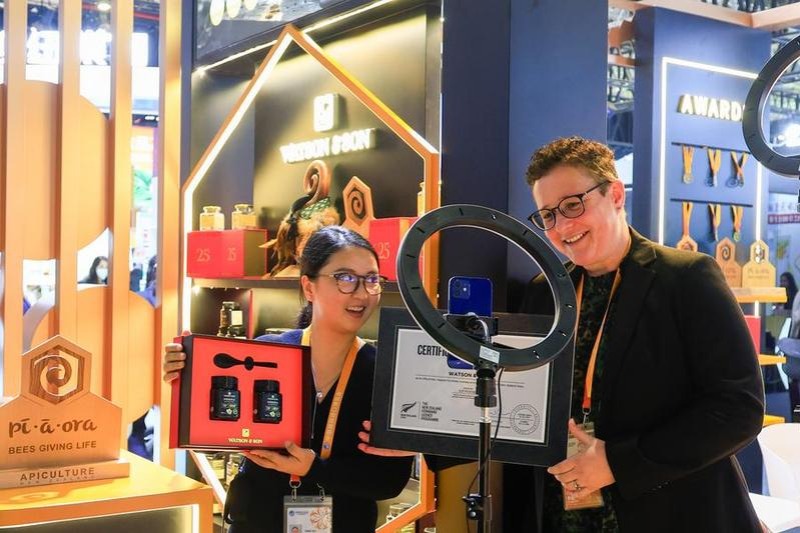Judge rejects Meng's bid to add evidence
By HENG WEILI in New York and RENA LI in Toronto | China Daily Global | Updated: 2021-03-24 11:01

A Canadian judge on Tuesday rejected a request by lawyers for Huawei executive Meng Wanzhou to add evidence in her extradition case.
Meng's defense team sought to include an affidavit from a Huawei accountant, which they said would shed light on the company's financial practices and help prove Meng's innocence as she fights extradition from Canada to the United States.
Associate Chief Justice Heather Holmes of the British Columbia Supreme Court rejected the affidavit, the third such request made by Meng's legal team, stating that the evidence "is not relevant" to the extradition hearing. Much of the team's other requests were similarly rejected.
Also, government lawyer Robert Frater told Holmes on Tuesday that she was hearing "two starkly different narratives", one from the defense and one from the government.
"One is an exciting narrative. It involves a covert criminal investigation, witnesses lying on an almost industrial scale, and a cross-border cover-up," said Frater, in response to Meng's defense team's claims.
"The other narrative is more prosaic. It involves two sets of public officials going about their required tasks in circumstances where there was no playbook," he said, in reference to police and border authorities.
Meng's defense has argued that authorities violated her rights under the Canadian Charter of Rights and Freedoms when she was arrested. The charter applies to all people in Canada, regardless of citizenship or residency, the defense said.
"When viewed cumulatively, it is clear that this misconduct so undermines the integrity of these extradition proceedings such that a stay of proceedings is required to distance this court from the past and ongoing abuse," the submission said.
The defense said that the warrant that resulted in Meng's arrest had been obtained by US misrepresentations; that Canadian police ignored the warrant's request to arrest Meng "immediately", to facilitate a covert probe; authorities acted as agents of the FBI; border officers unlawfully shared information with the FBI and Canada's spy agency; and the police unlawfully searched Meng's electronic devices and provided more information to the FBI.
Meng, 49, the chief financial officer of Huawei Technologies Co Ltd, was arrested by Canada at the request of the US at Vancouver International Airport on Dec 1, 2018. She faces extradition to US on fraud charges by putting the HSBC bank at risk of violating American sanctions against Iran, which Meng and Huawei have denied.
On Monday, defense lawyer Scott Fenton argued that a retired Canadian police officer is the "most important witness" on the issue of whether Meng's electronic information was improperly shared with the FBI in the US.
In the bulk of the witness testimony in November, former staff sergeant Ben Chang, who retired six months after Meng's arrest, refused to testify in court and filed an affidavit denying sending the electronic information to the FBI.
The court has seen the notes of Royal Canadian Mounted Police (RCMP) officer Sergeant Janice Vander Graaf indicating that she was told by a colleague, Constable Gurvinder Dhaliwal, that Chang sent serial numbers for Meng's devices across the border.
However, Dhaliwal later testified he did not recall telling Vander Graaf such information and did not believe that any RCMP member, including Chang, illegally provided evidence to FBI.
Fenton said that Chang's refusal to submit to cross-examination is "one of the more troubling elements in the case".
The lawyer urged the judge to give "no weight" to Chang's written testimony and instead to take an "adverse inference" or conclude that the cross-examination would have undermined the claims in his affidavit.
"If he was cross-examined, had he not refused, his evidence would not support his credibility," Fenton told the judge.
Fenton has argued that the electronic information is a "gateway" to more personal information because law enforcement can use it to request access to her photos and contacts.
Chang's text messages and emails were "wiped", and his workstation was replaced upon his retirement, leading Fenton to accuse the Mounties of "unacceptable, unexplained negligence".
According to Fenton, the possible sharing of electronic serial numbers became a "live issue" in the case weeks before a 90-day window closed on the permanent deletion of material. However, RCMP took no steps to preserve any relevant material and prevent its destruction, he said.
Lawyers for Canada's attorney general said the emails and text messages were deleted as regular procedure after Chang's retirement. Neither is there evidence that Chang shared the information with the FBI, nor that the US sought the device information for any improper purpose, the government said.
Richard Peck, another lawyer for Meng, argued Monday that the Canadian Border Services Agency (CBSA) took deliberately "shoddy" notes, saying they represented a pattern of "obfuscation" with "uniform omissions".
Meng's lawyers also claimed that the former CBSA Pacific regional director instructed employees not to keep records on the Meng case in the weeks after the high-profile arrest, as they would be "vulnerable" to access to information laws.
Going forward, the defense will argue that the US is exceeding its jurisdiction by attempting to prosecute a Chinese citizen for actions that occurred in Hong Kong involving a British bank.
The hearings on Meng's extradition are scheduled to conclude on May 14, after which Holmes will decide whether to approve extradition. Appeals, however, could extend the process for years. The final decision on whether to send Meng to the US for a trial in New York will be made by Canada's justice minister.
Agencies contributed to this story.
























